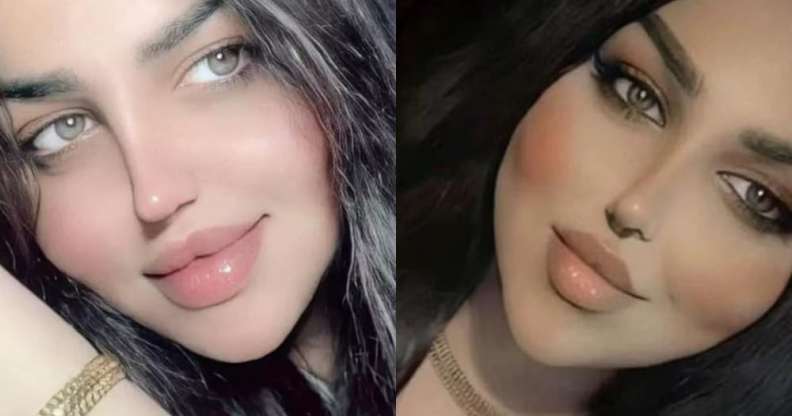Trans woman shot dead by her own brother had been in hiding after death threats from family

Doski Azad, a salon worker who fled her family to live her truth. (Instagram/@__kurd__gay__)
A trans woman who was shot dead by her own brother in Iraqi Kurdistan had been in hiding amid repeated death threats from male family members, friends have said.
Doski Azad, a 23-year-old make-up artist, was found dead in late January in a small village 12 miles north of Duhok in the Duhok Governorate.
According to friends, Azad had been living in hiding from her family before she was murdered. She had been moving location regularly after male relatives sent her repeated death threats.
“She was such a nice person and everyone loved her so much,” said a close friend who spoke to The Guardian on condition of anonymity.
“She lived alone because when she went to her family home they said to Doski, ‘Get out’,” the friend said. “They said, ‘When we see you alone, we will kill you’.”
When Azad’s body was found dumped in a ditch, her hands were tied and she had been shot twice in the head.
Police have issued a warrant for the arrest of her estranged brother, Chadkar Azad, who they think travelled to Duhok from Germany to kill her.
Azad was rejected by her family at a young age for being trans and had supported herself since she was in her early teens. She worked as a make-up artist preparing brides for weddings, earning a positive reputation that saw her land a job in a local salon.
Police said they believe Azad was murdered in a so-called “honour killing”.
“Our investigation so far suggests that Doski Azad was killed by her brother at a location just outside the city before he managed to flee the crime scene,” Duhok police spokesperson, Hemin Suleiman, added.
Azad’s friend told The Guardian that her brother had made attempts to kill her before. “When I called her [a while ago] she didn’t answer me, and later I said, ‘Doski, where you have been?’ And she said, ‘My brother came to kill me and I went to the police’.”
Kurdish rights group Yeksani said that hate crimes against the LGBT+ community are on the rise in the Kurdistan region, with the group’s director, Zhiar Ali, pointing out that Azad was one of very few openly trans women in Kurdistan.
“This level of freedom in Kurdistan comes at a risk, and we witnessed this in Doski’s case,” Ali said. “Living openly as an LGBT+ person is deeply stigmatised.
“Honour killings are very prevalent. We have hundreds of nameless graves, they are marked with numbers. The victims are so disrespected that, not only are they blamed, but they disrespect them even when they are dead.”
Honour killings have a long, grisly history in both Iraq and in the semi-autonomous region of Kurdistan, which stretches across western Asia and includes northern Iraq.
At least 120 women were victims of honour killings in Iraqi Kurdistan in 2019, according to statistics by the Kurdistan Regional Government.

